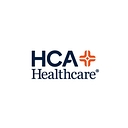
Family Medicine Residency
HCA Healthcare - Memorial Satilla HealthFamily Medicine Residency
Welcome to rural Family Medicine in Waycross, Georgia, a small program that was established in 1998 in affiliation with the Medical College of Georgia at Augusta University. The 1:2 rural program is based at Memorial Satilla Health, an acute care facility that has been serving Waycross and its eight surrounding counties for over 60 years. The residency was transferred to HCA Healthcare as of January 2023.
The mission of the HCA Healthcare/Mercer University School of Medicine/ Memorial Satilla Health Rural Residency Program is to provide patient- and family-centered care and advance the health and well-being of those we serve. With the partnership of HCA Healthcare/Mercer University School of Medicine/Savannah Memorial, the program strives to train well-rounded physicians who are able to take care of the patient as a whole, and to ensure that they are able to practice family medicine at a high level.
Mission Statement
The Memorial Satilla Health Family Medicine Residency Program's mission is to develop the next generation of physicians and physician leaders. As a part of HCA Healthcare, we are driven by a single mission: Above all else, we are committed to the care and improvement of human life.
This program is designed to offer residents a rewarding, educational environment where residents are provided individualized learning opportunities by faculty and staff who support and sustain one another throughout quality care delivery. Our faculty are committed to ensuring the residents' clinical experience and educational needs are fulfilled while expanding residents' perspectives to be inclusive of cultures, values, and ideals.
Program Overview
Each year, three residents are selected for the unopposed, 1+ 2 program. The first year occurs at Memorial Health University Medical Center in Savannah, GA, and years 2 and 3 are completed in Waycross, GA, thus a wide range of experiences. The program is designed to help meet the need for well-rounded family practitioners in rural Georgia and seeks individuals who are self-directed and motivated to fill that need.
The Family Medicine faculty and specialists who train our residents have a long history of teaching and demonstrate commitment to the program. The challenge of Family Medicine involves working with populations of all ages. Rotations include working with board-certified specialists in outpatient and inpatient settings. In addition to gaining knowledge, experience, and confidence, this relationship assists residents in the crucial area of forming sound interpersonal relationships with patients, peers, and other members of the patient care team.
With a full range of services and a large population base, residents are ensured experience in recognizing and treating a broad spectrum of health concerns, ranging from minor illnesses to complicated and complex patients. In their outpatient, continuity clinic, residents develop a patient panel of their own and recognize the central role the family physician plays in rural communities and small towns.
Program Curriculum
A small program offers residents flexibility with rotations where they have a special interest, and also takes into consideration management of important life and family events.
The most frequent procedures provided to patients in the family medicine clinic include chest x-rays, EKG interpretation, cerumen removal, joint injection/aspiration, lacerations, incision and draining of abscess, skin tag removal and nail removal. Opportunities for mentoring medical students and moonlighting also exist for qualified residents.
Key services include a very busy ER where we treat more than 45,000 emergencies each year; our Heart, Surgery, Rehabilitation, Orthopedics, Sleep and Birthing Centers with specialists trained specifically for these needs; and an extensive Mental Health program for senior adults and those suffering with memory loss. The latest addition to the hospital is a Wound Care Center with a hyperbaric oxygen chamber.
Residents also gain exposure to the business aspects of medicine and gain insight into the business operations, from finance to human resources. This experience will provide useful whether residents enter a private outpatient practice, choose hospital medicine or some other employment model upon graduating.
| PGY1 | PGY2 | PGY3 |
|---|---|---|
| Outpatient 8 weeks | Outpatient 4 weeks | Outpatient 4 weeks |
| Inpatient 8 weeks | Inpatient 12 weeks | Inpatient 12 weeks |
| Night Float 6 weeks | Psych 2 weeks | Nephrology 2 weeks |
| Obstetrics 2 weeks | Nephrology 4 weeks | Cardiology 4 weeks |
| Newborn Nursery 2 weeks | Urology 2 weeks | Obstetrics 6 weeks |
| Peds ER 2 weeks | Outpatient Peds 4 weeks | Ophthalmology 2 weeks |
| Peds Inpatient 2 weeks | ED 4 weeks | Orthopedics 2 weeks |
| ICU 2 weeks | Neuro 2 weeks | Heme-Onc 2 weeks |
| Radiology 2 weeks | Surgery 4 weeks | Elective 6 weeks |
| Pain 2 weeks | Podiatry 2 weeks | Rheumatology 2 weeks |
| Elective 14 weeks | Gynecology 4 weeks | GI 2 weeks |
| Orientation 2 weeks | Community Medicine 2 weeks | Derm 4 weeks |
| Elective 4 weeks | Outpatient Peds 4 weeks | Orientation 2 weeks |
Salary & Benefits Information
Salary AY 25-26
| Year | Salary | On-Call Meals | Total |
|---|---|---|---|
| PGY1 | $61,360 | $950 | $62,310 |
| PGY2 | $63,502 | $950 | $64,452 |
| PGY3 | $65,728 | $950 | $66,678 |
Benefits
- Laptop and iPhone are issued on day 1.
- Meals, no charge (breakfast and lunch) physician’s lounge, Mon thru Fri
- Call room w/computer, TV, shower, lockers.
- Two monogrammed lab coats (and/or equivalent) and personal business cards
- Personal advisor and support group advisor
- Employee Assistance Program (for employee AND household family members)
- Flexible spending account, life Insurance, HCA 401K and stock purchase option
- Long and short term disability
- Affordable medical, dental and vision plans